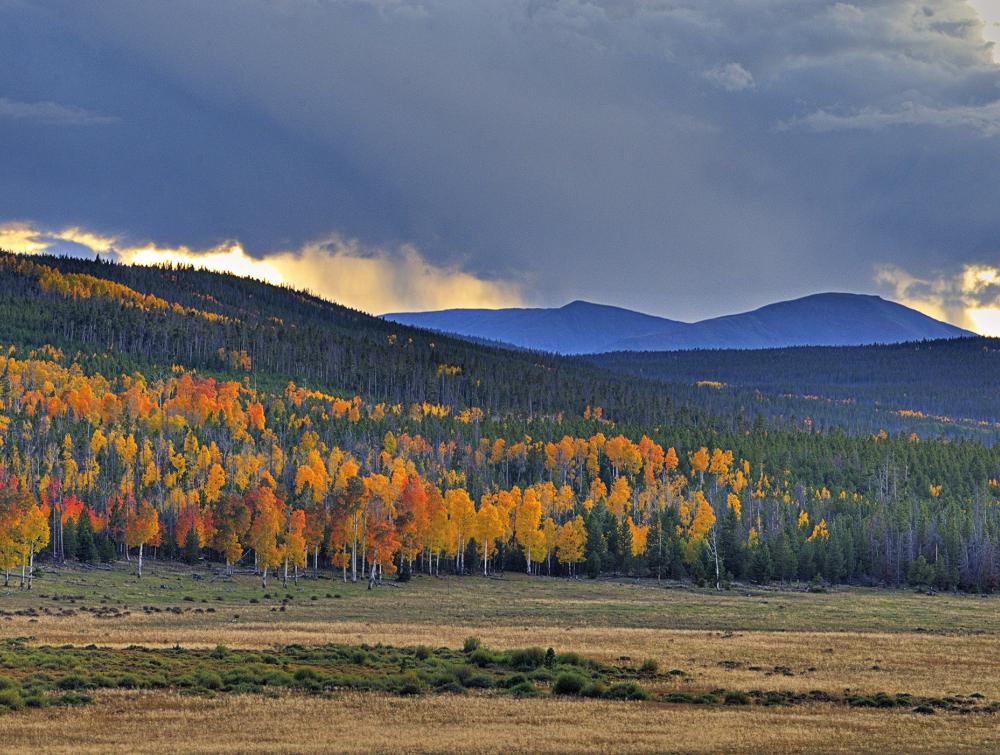Utah wants to build roads through untracked public forest

Inventoried Roadless Area in Ashley National Forest, Utah
Tim D. Peterson
U.S. Department of Agriculture Secretary Perdue should reject state petition
Utah’s governor once again launched an attack on public lands, this time requesting the Trump administration allow roadbuilding and commercial logging on 4 million acres of pristine national forests.
Utah is the second state in 13 months to petition the U.S. Department of Agriculture to weaken protections on public lands held in trust for all Americans. Last year, Alaska Gov. Bill Walker made the same request, hoping to open up logging and development on 9 million acres of the Tongass National Forest – the last intact coastal temperate rainforest in the world.
Utah Gov. Gary Herbert’s request this week comes on the heels of his efforts to orchestrate the largest rollback of public land protections in history when he persuaded the Trump administration to dramatically shrink the Bears Ears and Grand Staircase-Escalante national monuments. Now, Utah’s drinking water, wildlife and outdoor recreation economy – opportunities to mountain bike in Moab, backcountry ski outside of Salt Lake City or hike along the Wasatch Front — are in jeopardy if Utah is allowed to unravel protections that have preserved these places for more than two decades.
“Not only are millions of Utahns’ drinking water and favorite recreation spots at stake, but these moves would unravel protections on America’s most treasured and undeveloped public lands,” said Josh Hicks, roadless defense campaign manager at The Wilderness Society. “Across the state and the country, America’s public lands are in the crosshairs, and this move will drastically expand the human footprint into our last remaining natural places.”
This is a different approach by Utah’s governor to get at a familiar and harmful objective: dictating to the federal government how to manage public lands. Weakening the National Forest Roadless Area Conservation Rule, known as the “Roadless Rule,” prioritizes commercial logging and extractive industries over the priorities and benefits of all Americans. The policy, implemented in 2001, was designed to preserve the last unprotected roadless areas within the national forest system and to balance national forest use. When enacted, the Roadless Rule protected 58.5 million acres across 39 states.
Most concerning, perhaps, is that these state petitions are not based in science but rather play on people’s fears. In Alaska, the state’s rationale is an economic one even though commercial salmon fishing is far more stable and reliable than then the boom-and-bust cycles of the logging industry. Utah is sadly capitalizing on the threat wildfires have posed in recent years to rural communities. Unfortunately, this change would potentially increase the threat of wildfire to communities by diverting important resources away from the areas that truly need it: in and around homes and businesses in forested areas.
The Wilderness Society urges Secretary Perdue to reject Utah’s petition, and move to strengthen protections on these landscapes rather than unravel them.
Contact:
- Chelsi Moy, Communications Manager, The Wilderness Society, (406) 240-3013, cmoy@tws.org
- Josh Hicks, Roadless Defense Campaign Manager, The Wilderness Society, (303) 650-1148, josh_hicks@tws.org
The Wilderness Society, founded in 1935, is the leading conservation organization working to protect wilderness and inspire Americans to care for our wild places. With more than one million members and supporters, The Wilderness Society has led the effort to permanently protect 109 million acres of wilderness and to ensure sound management of our shared national lands. www.wilderness.org
